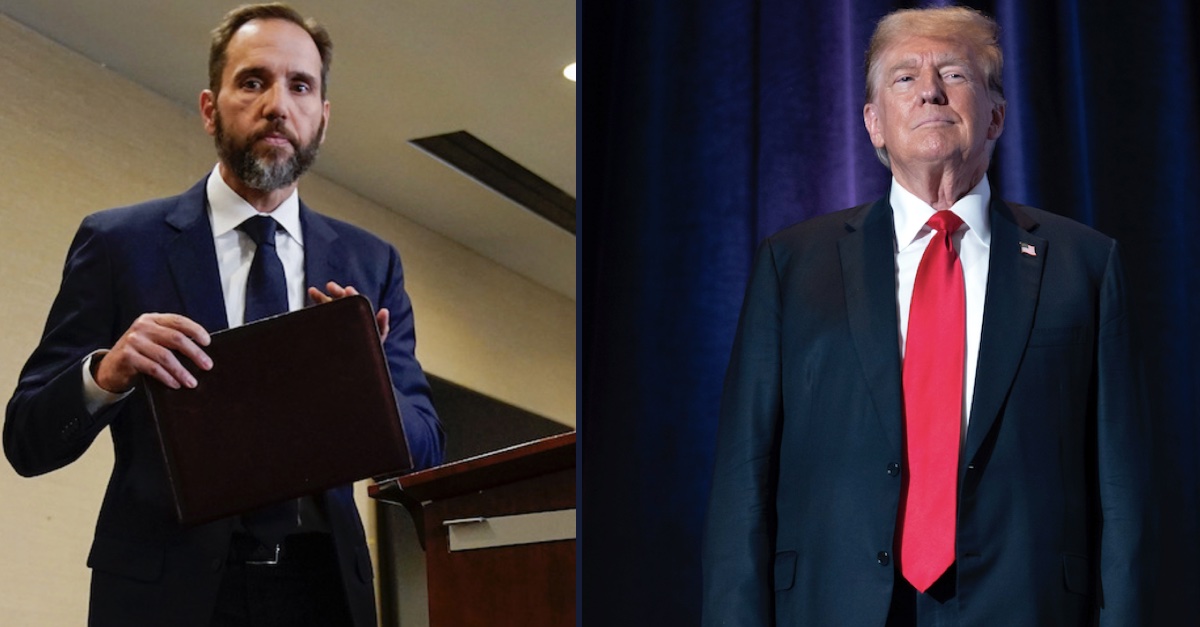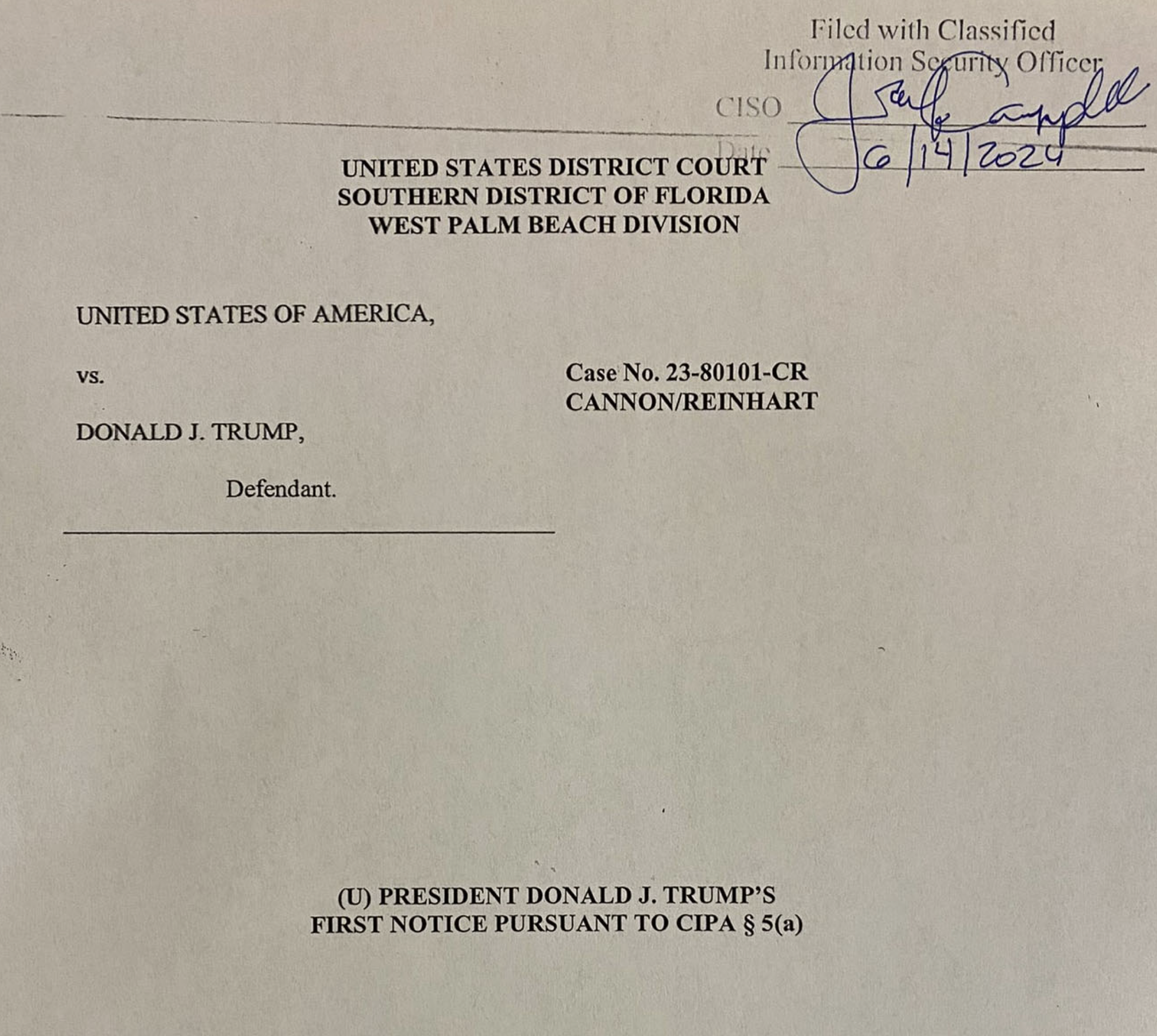
Special counsel Jack Smith (left) speaks on Aug. 1, 2023 AP Photo/Jacquelyn Martin), former President Donald Trump (right) pictured on May 25, 2024. (AP Photo/Jose Luis Magana)
After Donald Trump’s lawyers successfully pushed back a key deadline to file a “linchpin” notice for moving the Mar-a-Lago case toward trial, having cited the Manhattan hush-money case that has since ended with 34 felony convictions, the attorneys finally revealed their intent on the use of classified documents as part of the defense.
A brief Monday filing from Trump attorneys Todd Blanche, Emil Bove, and Christopher Kise alerted U.S. District Judge Aileen Cannon and the Special Counsel’s Office that they followed the jurist’s June 14 order and submitted their first notice under § 5(a) of the Classified Information Procedures Act, otherwise known as CIPA.
The notice, the Trump team disclosed, was handed to the “Classified Information Security Officer in Fort Pierce, Florida.”
While the notice itself contains no public specificity as to which document or documents obtained through discovery are involved — it’s classified, after all — the filing shows that Trump lawyers will, either pretrial and/or during trial, use classified material as part of their defense.

Trump’s CIPA § 5(a) Notice
Special counsel Jack Smith complained in April that the defense was dragging its feet and “must stop” pushing “reflexively” for “open-ended” delay in meeting the notice deadline that he called “crucial” for “getting the case to trial.” The special counsel also noted that the original deadlines had been set for November 2023.
The DOJ’s Justice Manual explains why it matters. The manual calls the CIPA § 5(a) Notice the “linchpin” of CIPA, which is a statute designed to protect classified information over the course of a criminal proceeding, here the prosecution of Trump under the Espionage Act in the willful retention of national defense information case.
More Law&Crime coverage: Judge Cannon swiftly tells pro-Trump attorneys general opposing Jack Smith gag order demand to take a walk
“The linchpin of CIPA is section 5(a), which requires a defendant who reasonably intends to disclose (or cause the disclosure of) classified information to provide timely pretrial written notice of his intention to the Court and the Government,” the DOJ says. “Section 5(a) expressly requires that such notice include a brief description of the classified information,’ and the leading case under section 5(a) holds that such notice must be particularized, setting forth specifically the classified information which the defendant reasonably believes to be necessary to his defense.”
But the notice filing also represents a key move for the defense, since the failure to file a “sufficiently detailed notice far enough in advance of trial to permit the implementation of CIPA procedures” would mean they’d be barred from using classified materials, the DOJ further explains.
In April, the special counsel also complained about the defense pushing for delays of an expert witness disclosure deadline. As recently as June 11, Cannon granted Trump and his co-defendants, valet Walt Nauta and Mar-a-Lago property manager Carlos De Oliveira, a third extension on that front.
To achieve that result, the defense said the hush-money trial had made it “challenging” for meeting the deadline, especially since the CIPA § 5 Notice was in the works.
“As the Court is aware, President Trump and his counsel recently concluded a six-week trial in New York, which has made the timing of the expert-notice deadline challenging,” the defense said. “Since the New York trial, we have also been reviewing recent productions of classified and unclassified discovery by the Special Counsel’s Office, preparing to file a pretrial motion based on certain of those disclosures, and preparing to timely file our CIPA § 5 Notice pursuant to the deadline set by the Court.”
Have a tip we should know? [email protected]









